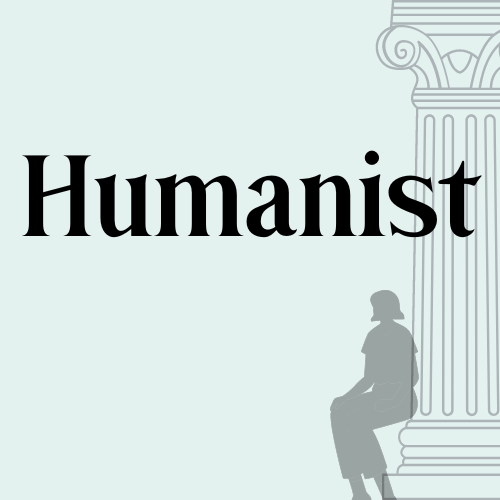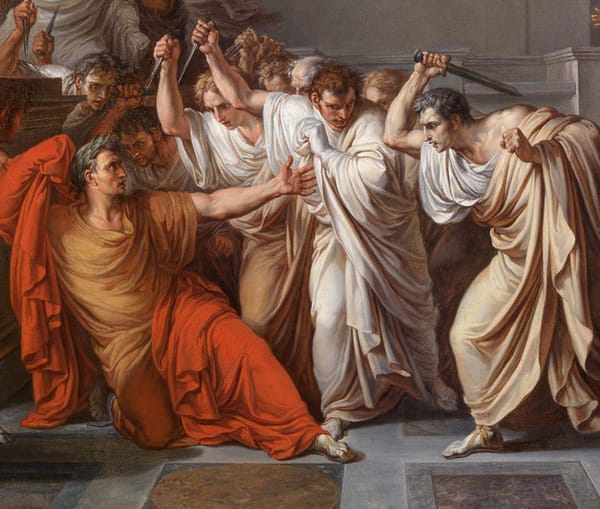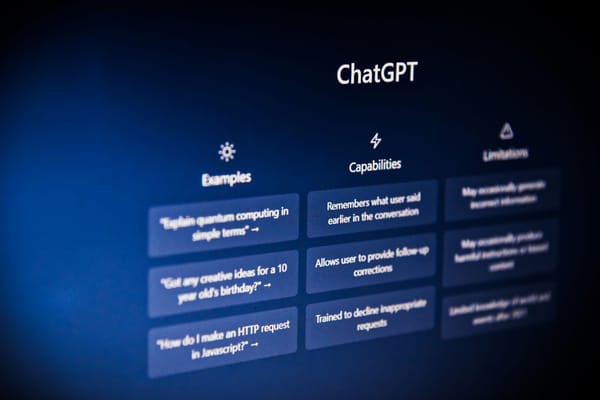Testing without the torture: what is formative assessment?
Formative assessment is dialogic in nature, a conversation where student and instructor communicate back and forth about beliefs, strategies, expectations, and judgments. Both the student and the instructor get feedback that will help them do better.

Tests cause anxiety for most students, some more than others. A few of my students told me that their testing anxiety was almost debilitating, and made it difficult for them to show what they knew – their minds would just go blank. This was a terrible experience for them, but it also made it difficult for me to assess what they'd learned, or how well I'd taught them.
Testing causes this level of anxiety because the stakes often seem very high. Some of us heard that our SAT scores would determine the rest of our lives from an early age. In a course where your entire grade is made up of your score on midterm and final exams, your performance on those tests is going to leave a big, permanent mark on your transcript. If you're having a bad day, too bad. Your grade is your grade. There is no "next time."
It's unusual to encounter this situation once you leave school. In most workplaces, even when you deliver a big presentation or you have to perform under pressure, you expect to get feedback so that you can continue to improve. There's usually a "next time," and you continually learn from experience and mistakes.
Ever since the 1960s, educators have distinguished between summative and formative assessments. Summative assessments are the tests we usually think of, the final exam that determines your grade in a course, where you get one chance to show what you've learned (or not). Formative assessments, by contrast, include any activity where a student reflects and/or receives feedback on their work, in order to help them to improve. Formative assessments should be low-stakes, in terms of the student's final grade, to keep the emphasis on improvement. One group of scholars describes summative assessment as "assessment of learning," and formative assessment as "assessment for learning." If you're competing in archery, they explain, your practice shots would offer an important opportunity for formative assessment, while official competitions are summative. (I prefer to think of formative assessment as spring training, while summative assessment is the regular baseball season, when the games count.)
Robert Stake, an education scholar at UIUC, wrote: "My interpretation is that when the chef tastes the soup, it's formative evaluation, and when the guest tastes the soup, it's summative evaluation." As we learn from watching Top Chef (once again an excellent resource for pedagogy), serving your food to guests or judges without tasting it yourself – without an opportunity for reflection, feedback, and improvement – often leads to worse outcomes!
You may wonder: if the chef is tasting their own soup, where is the teacher in this analogy? Just as Top Chef contestants ask their fellow competitors and/or judges for feedback during the development process, learners benefit particularly when there's external feedback from peers and/or experts. Peer review, in fact, is a form of formative assessment: you (ideally) get constructive feedback from an expert, which you use to inform your own reflection and to improve the final product.
Why is formative assessment important?
In 1971, Benjamin Bloom (of Bloom's Taxonomy fame) and two of his colleagues published the Handbook on Formative and Summative Evaluation of Student Learning. In the 1980s and 1990s, researchers showed that formative assessment substantially improves students' performance on exams, but it also substantially improves their learning overall, including meaningful, deep learning. In addition, it was thought that formative assessment would improve students' ability to evaluate their own learning for themselves (their metacognition) and to make adjustments to meet their own goals (their self-regulated learning).
The National Research Council's Committee on the Foundations of Assessment put out a volume called Knowing What Students Know (2001), in which the editors explain that real mastery depends on how learners organize what they know in long-term memory so that they can transfer it to new questions or areas. To evaluate or assess that deep understanding, you can't just ask multiple choice questions. Experts are also good at realizing what they don't know, and at switching gears when a problem-solving strategy is not working – in other words, they have strong metacognitive skills. These, too, are impossible to assess with multiple choice questions. They're also hard to quantify with a grade – but formative assessments don't need to be graded.
National exams or tests like the SAT reduce student learning to a single score without providing any information about why a student has or lacks certain knowledge or skills; they provide no opportunity for feedback or improvement; and they often carry high stakes for students, teachers, and schools. The conceptual foundation of formative assessment, by comparison, is a growth mindset and a focus on process and development, rather than "ability" or "aptitude" conceived of as a fixed capacity. In the early 2000s, the testing regimes of No Child Left Behind and Race to the Top seem to have driven many education scholars to renew the calls for formative assessment as an alternative, or at least a complement, that would feel less punitive. (Testing companies responded by selling "formative assessments" in the form of practice tests.)
UK-based researcher Mantz Yorke pointed out that students who are used to a constantly changing merry-go-round of unclear, seemingly arbitrary grading schemes and "teaching to the test" develop a sort of learned helplessness. They focus on "performance," figuring out what the teacher wants and how to deliver it, while losing sight of their own learning and growth. Many college students, especially the high-performing ones, are pretty deeply entrenched in this mindset. CU Boulder's Lorrie Shepard asks:
How might the culture of classrooms be shifted so that students no longer feign competence or work to perform well on the test as an end separate from real learning? Could we create a learning culture where students and teachers would have a shared expectation that finding out what makes sense and what doesn’t is a joint and worthwhile project, essential to taking the next steps in learning?
Royce Sadler, an Australian scholar, writes that students benefit from feedback when they know:
- what good performance is (i.e. the student must possess a concept of the goal or standard being aimed for);
- how current performance relates to good performance (for this, the student must be able to compare current and good performance);
- how to act to close the gap between current and good performance.
Sadler also writes that "the essential and necessary role of the teacher is to act as a mediator between, on the one hand, a body of knowledge and skills to be learned, and on the other hand, the learner." Formative assessment is dialogic in nature, a conversation where student and instructor communicate back and forth about beliefs, strategies, expectations, and judgments. This dialogue should be ongoing, with frequent exchanges. In that sense, any assessment, even a traditional exam, can also be formative if the instructor is providing feedback and guiding the student to improve for next time.
Within a course, formative assessment can act as an early warning system for both the student and the instructor. It lets the student know how they're doing while they can still do something about it, if they're unpleasantly surprised. In fact, because formative assessment is all about growth, some pedagogy experts talk about providing not feedback but "feed-forward." The instructor is getting feedback too, about how effective their teaching has been and areas for their own improvement and growth.
Formative assessment seems to be particularly effective when students themselves are generating questions, and even when they're the ones providing feedback to each other. On a purely practical level, giving all this feedback to every student is very time-intensive, so peer workshops are a way to delegate that work. But when they provide feedback to each other, it helps them to think more critically for themselves about how work measures up to expectations and criteria for success – and we all know that it's easier to judge someone else's work than our own. Generating questions also pushes students to think about what they know and what they don't, building that self-regulated learning muscle.
What might formative assessment look like in practice?
Technically, any time you've asked "Does that make sense?" or "Any questions?" at the end of a sentence while teaching, you've done a formative assessment. But there are more effective strategies.
- Asking "what makes you say that?" "How did you come to that conclusion?" or "How did you figure that out?"
This is a way to build formative assessment and metacognition into everyday practice. The only way to understand a student's mental model or understanding is to ask them to explain it!
- Practice tests
In courses with multiple choice tests, you can load a bunch of quiz questions into your LMS and let students practice to their heart's content – the LMS will at least tell them if they're right or wrong, with no grading work for you. I've done this in intro Latin courses by putting exercises from the back of the textbook into Canvas, and for some students, it really helped them to feel prepared and less anxious about tests. If students review these practice quizzes together, or write the practice questions themselves in class, they'll benefit even more. You could have them write a few practice questions at the end of every class session. If their questions contain mistakes, you get to correct them on the spot.
- Breaking down assignments into multiple steps with feedback
For essay assignments and projects, you can have students submit drafts and provide feedback before they produce their final version. This feedback needs to be timely if it's going to help, and directed to improving the work itself – if it's perceived as describing the student's ability rather than their work, even if you are praising their ability, it can actually demotivate them. Peer workshops can be a good option, but you'd want to give students some guidance and ground rules on being constructive (I'll probably write a separate post about this at some point).
- "Minute essays," "exit tickets," and other check-ins
Finished your lecture early? Dead air in class? Teaching while exhausted and/or sick? Great time for a quick formative assessment! (Or, you know, you could plan them in advance.) You could ask students to write a "minute essay" and turn it in (an "exit ticket" if they do so while walking out the door), or "think-pair-share" with a neighbor or group. These don't need to count for a grade – in fact, some would say they shouldn't, because the focus should be on learning – but you should read them to check for understanding, and perhaps share some good answers and clarifications. Some common prompts:
- What’s the most important thing you learned today?
- What's the most surprising thing you learned today?
- How would you summarize the 3 most important points of today’s class?
- What’s the most important thing you learned in our class last week?
- What did you learn today that connected to something you learned earlier in the class?
- What’s something that confused you today?
- What questions do you have about this subject?
- What test questions do you hope I ask you about this subject?
- If I quizzed you on what you learned today, how do you think you would do? What might be easy or hard?
- Draw a concept map or mind map to explain something we learned today.
It might be fair to say that in a perfect educational world, we wouldn't need formative assessment. In a perfect educational world, we would already have a sense of what our students know. We would talk with them and work alongside them, watching how they think, how they solve problems or answer questions, and provide feedback as we go. They might also work alongside each other, so that they could get a sense of how others work, and others' level of mastery of certain skills or fields of knowledge compared with their own. I think back to the days of recitations and oral exams, and I think that teachers then must have had more opportunities (in theory) to interrogate and understand students' mental models and strategies, so that they could offer more constructive feedback to help them improve. Unfortunately, for most of us, that's not what a classroom looks like, because our classes are too big and our time is too short. AI enthusiasts believe that tutoring algorithms might be able to provide this intensive feedback someday, although they certainly can't now (they don't intervene to correct students, among other things). So for now, formative assessment is the best we can do.
Further reading
The "Test Anxiety Inventory," a quiz you can administer to students or encourage them to take on their own: https://espace.bsu.edu/aarc/wp-content/uploads/sites/142/2016/10/Cognitive-Test-Anxiety-Scale-Short-Form-1.pdf





